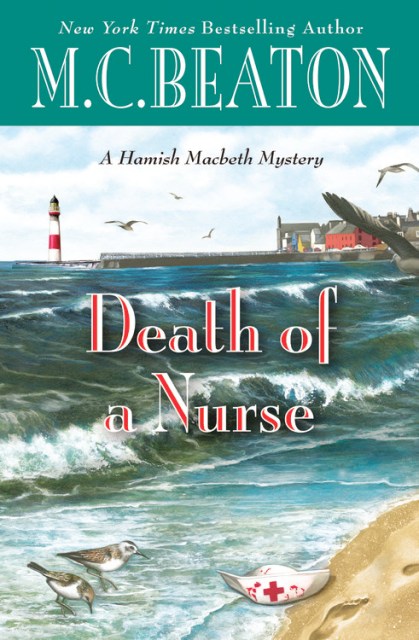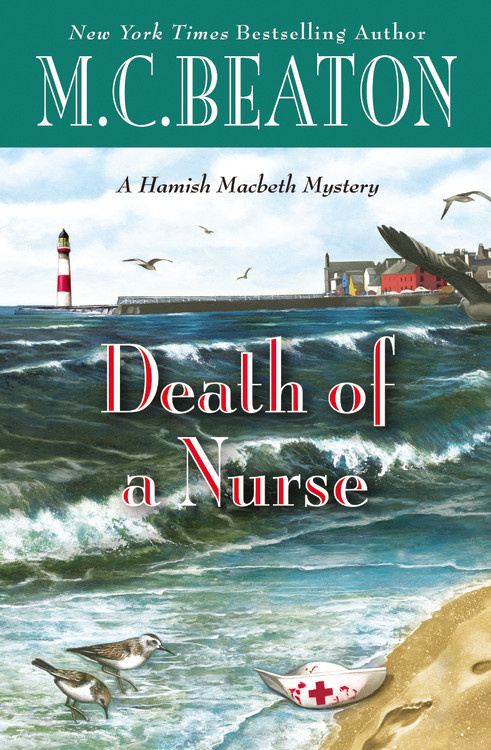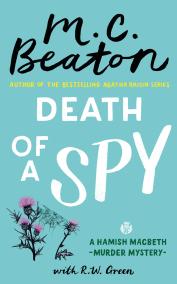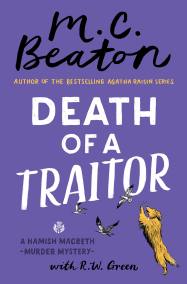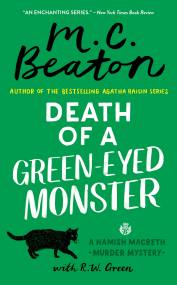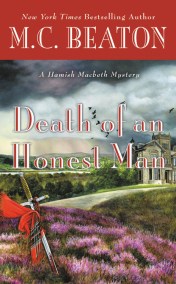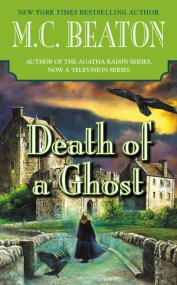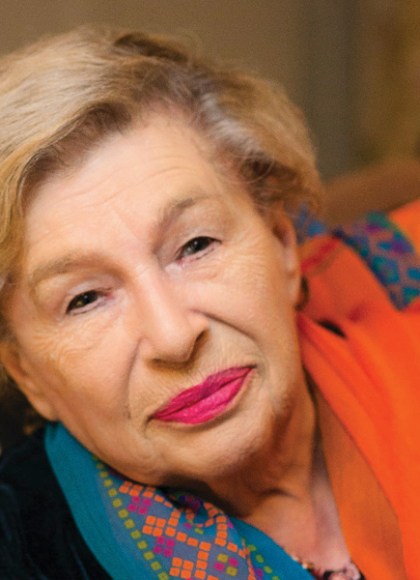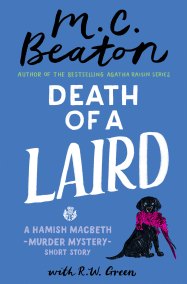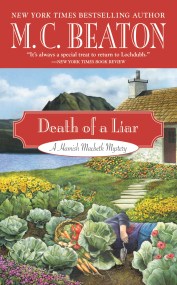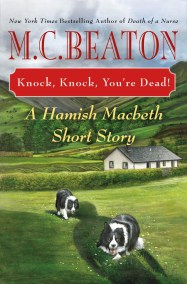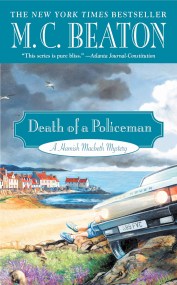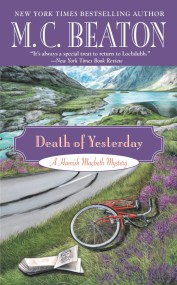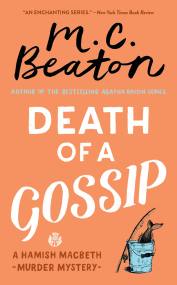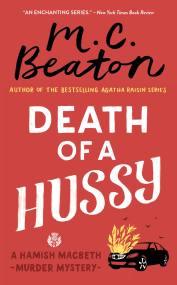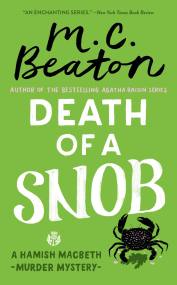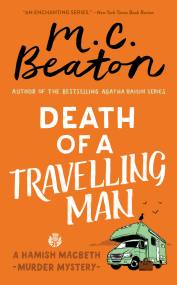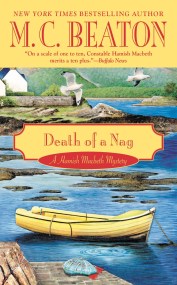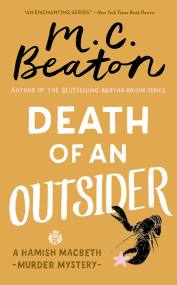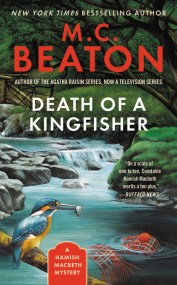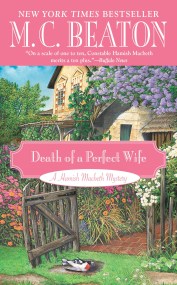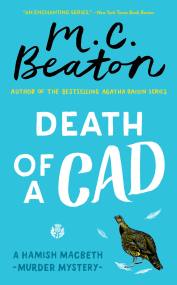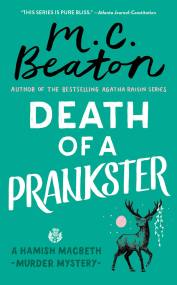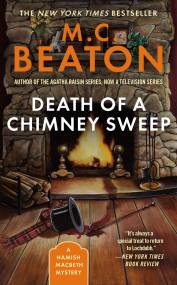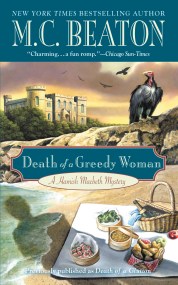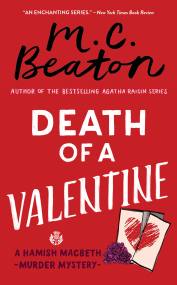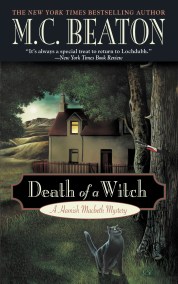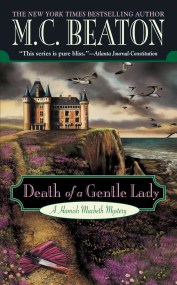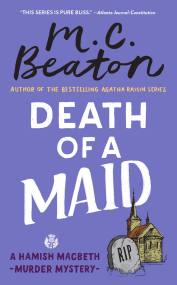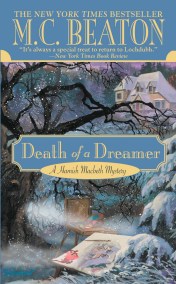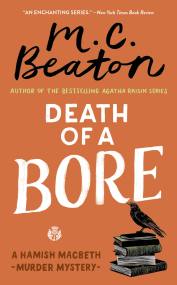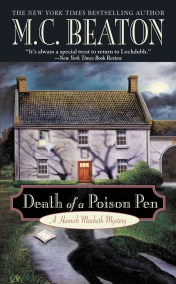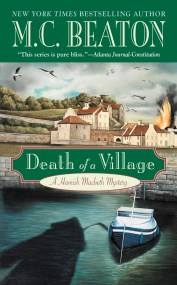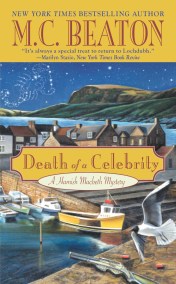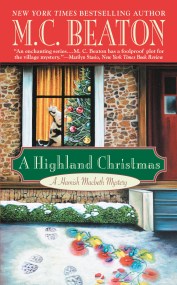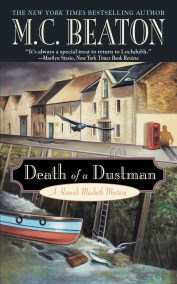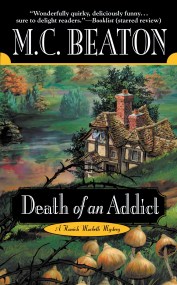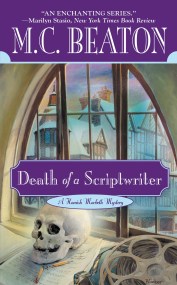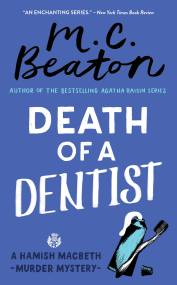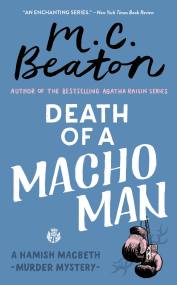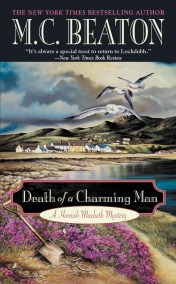Promotion
Use code MOM24 for 20% off site wide + free shipping over $45
Death of a Nurse
Contributors
By M. C. Beaton
Formats and Prices
Price
$36.00Price
$46.00 CADFormat
Format:
- Hardcover $36.00 $46.00 CAD
- ebook $7.99 $9.99 CAD
- Hardcover (Large Print) $39.00 $49.00 CAD
- Audiobook Download (Unabridged)
- Mass Market $7.99 $10.49 CAD
This item is a preorder. Your payment method will be charged immediately, and the product is expected to ship on or around February 23, 2016. This date is subject to change due to shipping delays beyond our control.
Also available from:
Travel to the Scotland Highlands with this classic Hamish Macbeth cozy mystery from the author of the Agatha Raisin series.
James Harrison has recently moved to a restored hunting lodge in Sutherland with his gorgeous private nurse Gloria Dainty. When Hamish visits Mr. Harrison to welcome him to the neighborhood, the old man treats him very rudely. Gloria apologizes for her employer's behavior, and Hamish takes the plunge and invites her out for dinner.
On the appointed evening, Hamish waits for Gloria at the restaurant. And waits. Gloria never shows up. Four days later, Gloria's body washes up on the beach near Braikie. Now without a date and without his former policeman Dick Fraser (who left the force to buy a bakery), Hamish must find out who killed the beautiful new resident of Sutherland, and why, before the murderer strikes again….
James Harrison has recently moved to a restored hunting lodge in Sutherland with his gorgeous private nurse Gloria Dainty. When Hamish visits Mr. Harrison to welcome him to the neighborhood, the old man treats him very rudely. Gloria apologizes for her employer's behavior, and Hamish takes the plunge and invites her out for dinner.
On the appointed evening, Hamish waits for Gloria at the restaurant. And waits. Gloria never shows up. Four days later, Gloria's body washes up on the beach near Braikie. Now without a date and without his former policeman Dick Fraser (who left the force to buy a bakery), Hamish must find out who killed the beautiful new resident of Sutherland, and why, before the murderer strikes again….
Genre:
-
"The latest appearance by the charming Scot...provides all the quirky characters and striking Highlands scenery you could want, along with one of Beaton's most successful mysteries."Kirkus on Death of a Liar
-
"Macbeth, when roused to action, is very canny at solving mysteries, and the Highlands setting is always satisfying. A fine mix of eccentric characters, vivid landscape, and engaging mystery."Booklist on Death of a Liar
-
"Longing for escape? Tired of waiting for Brigadoon to materialize? Time for a trip to Lochdubh, the scenic, if somnolent, village in the Scottish Highlands where M. C. Beaton sets her beguiling whodunits featuring Constable Hamish Macbeth."New York Times Book Review
-
"Hamish Macbeth is that most unusual character, one to whom the reader returns because of his charming flaws. May he never get promoted."New York Journal of Books
-
"With residents and a constable so authentic, it won't be long before tourists will be seeking Lochdubh and believing in the reality of Hamish Macbeth as surely as they believed in Sherlock Holmes."Denver Rocky Mountain News
-
"Macbeth is the sort of character who slyly grows on you."Chicago Sun-Times
-
"The latest appearance by the charming Scot...provides all the quirky characters and striking Highlands scenery you could want, along with one of Beaton's most successful mysteries."Kirkus
-
"Macbeth, when roused to action, is very canny at solving mysteries, and the Highlands setting is always satisfying. A fine mix of eccentric characters, vivid landscape, and engaging mystery."Booklist
- On Sale
- Feb 23, 2016
- Page Count
- 256 pages
- Publisher
- Grand Central Publishing
- ISBN-13
- 9781455558254
Newsletter Signup
By clicking ‘Sign Up,’ I acknowledge that I have read and agree to Hachette Book Group’s Privacy Policy and Terms of Use
